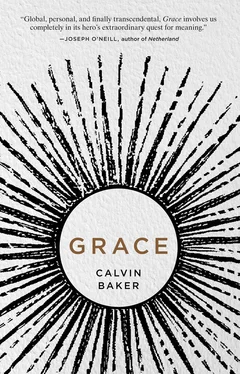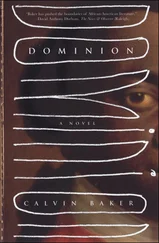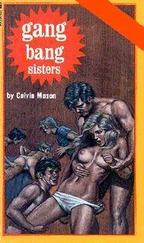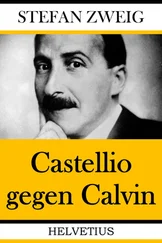“I do, and I don’t take it for granted.” I thanked her for the coffee, and the advice, and the feeling of understanding her friendship always inspired even when we disagreed.
It was six o’clock then, and my head hummed with the restored sense of possibility that comes from being in the company of those who see us, as I left to catch the train uptown to meet Anna.
At Grand Central the subway lurched to a halt in the tunnel, due to track construction, and remained there as six thirty struck and passed. There was no reception in the tunnel, leaving me unable to inform her I would be late.
The woman next to me saw me fidgeting, and gave a compassionate smile. She was reading a book of poetry, which led me to smile back at her, as she brushed a strand of red-dyed hair from her eyes.
I tried to make out the cover of the book she was reading, but the script was Cyrillic. It looked somehow familiar, though, and I asked what it was. “Pushkin,” she answered. That made me happy. “I once knew a girl in college who read Onegin to me in the original so I could hear its music.”
“An opera, or a chamber suite?” she asked; then, seeing the contemplation on my brow, “Was it a great love affair, or more ephemeral?”
“A love affair.”
“You haven’t had your great one yet.” I grew self-conscious. I did not have a type, but she fit neatly within my template of attraction. If not for the previous night I might have allowed myself to take it as a sign.
However, I knew better than to allow myself to get excited about someone I met on the subway. That would only open the door to trouble. People have agendas, or worse, they do not know their own agendas.
“Are you late for something?” She turned to me again, as the train finally started moving toward the station. I looked at my watch: it was six forty-five.
“I may have missed it.”
“It’s too late for me to go to class, too,” she said. “Would you like to have coffee?”
We were at 68th Street, and as we walked up the stairs chatting, she told me she was doing a postdoc in evolutionary linguistics. “Don’t you think it’s fascinating how you can tell the whole story of humanity through language?” she asked.
I cursed myself for the night before as I asked an anodyne question about whether her family were scientists.
She blushed until her cheeks were the same color as her hair.
“I’m the only person in my family to go to university,” she answered, adding she was also the only woman in her extended family who had not had a child before twenty-two.
When I asked why she had not, she told me she had wanted to study, but married at twenty-one. When her husband disapproved, she left him to come here alone.
We surfaced from the subway awkwardly.
I rang Anna, but there was no answer. I began leaving a message, but before I could finish I received an incoming text: “How dare you stand me up,” she wrote, full of outrage.
I called again, but she sent me straight to voicemail. I believed in generosity in my dealings with lovers — even former would-be lovers — but her self-importance made me regret again getting involved.
“It was not meant to be,” Irina said, when she saw my plans had fallen through. “So—?”
My emotions were chaotic; the last thing I could risk, I told myself, was trouble. I did not know whether she was or not, only that I had a way of drawing to me those who had grown up under dictatorships, in exile, in pain. Girls who had seen people die. Literally. Spiritually. And who had been told they were difficult, ugly, stupid. Too smart for their own good. I did not know what she was about, but the cost of finding out might prove too high. It was the subway. Allure and danger were everywhere.
“It was nice chatting with you,” I said, as we parted uncertainly.
But as she walked away, I regretted being closed to experience. She reminded me of people I knew with integrity, resilience, unjaded knowingness.
But as she disappeared I thought of Genevieve and felt what every fanatic, every tyrant, every sad sap in the whole history of the whole world knew instinctively, as he conspired to lock up his wives and daughters behind moats, under custom, under prejudice, under law: When you have lost your woman you have lost your way of life.
Before leaving the house the next morning for a meeting with my lawyer, Westhaven, I checked my e-mail, and found a dozen messages from Anna, each more wrathful than the last. “I have the number of the police, and I’m not afraid to use it,” she concluded.
Police? I turned off the computer without answering her, and made my way up to see Westhaven, fearful of what I had gotten myself into.
His offices were in an art deco building in Midtown, where the security guard scanned my identification before directing me to the elevator bank, where another guard checked the credentials I had just been issued. I went through a turnstile, then ascended an elevator whose doors opened onto a nondescript office suite of understated good taste. Westhaven’s assistant met me at reception and escorted me down the labyrinthine halls to his office, which was filled with books, diplomas, furniture carefully selected to demonstrate wealth without ostentation, and otherwise all the signs and codes you want from an attorney who understands the workings of the world. That it weighs you by a scale of outward signs. That it holds these things to be who you are and what you are worth. But the signs are false. A sign is not the thing. Both the measure that scale takes and the reading it gives are a delusion. But lives are shaped by it nonetheless. I paid Westhaven’s crazy fees not because he knew more of the law than others, but because he saw more of the world through his own eyes.
Whatever problem I had he always put in clear perspective. And, as I had neared his office that day, I’d begun to have the sense of calm security I always felt there. He saw life, without cynicism or idealism, and so was a counselor of the first order. Learned, yet respectful of what he did not know. Discrete without being secretive. Shrewd but honest. Sophisticated but never condescending. Skeptical, yet open to new possibilities. Conservative without losing consideration for dreams and those who chased them. Intelligent. Modest. Intolerant of fools.
When I entered his office, he was busy at his computer, which looked out over the park, with his back turned to the door. It was eleven fifty-nine on my watch, and at noon precisely he stopped his other task and bounded energetically from his chair to greet me.
“Good morning, sir.” He extended his hand warmly to take mine in a good, reassuring grip. He favored bow ties, and spoke with an easy, Middle American manner and cadence that belied the steel in his eyes, sharp and bright as bayonets, as we chatted amiably.
“You seem well,” I said, feeling a peace of mind to be sitting there that morning.
“I had the most wonderful evening yesterday. My wife got us tickets for the entire Henry tetralogy at Cherry Lane. Last night was Henry V , and as I watched it, I could not help being struck that all true kings be measured by the hardships they face in order to know the full measure of the world.”
“But not all who know hardship become great kings.”
“It is the test of the man,” he said. “With the best of them, I like to believe all is possible no matter what misstep. Those who are not the best, we are probably wise not to be too entangled with,” he smiled, as we settled down to business, “whatever it may seem to profit us. Now, what gives me the pleasure of seeing you today.”
I explained to him the situation with Davidson, which was that I had not been paid, as he took notes.
Читать дальше












